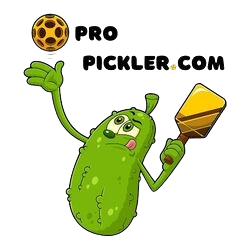In the world of pickleball, a perennial question arises regardless of skill level: Should you give it your all against someone who isn’t on the same level, especially in a friendly game? It’s a bit of a conundrum, isn’t it?
On one side, there’s the sheer excitement of the game—paddles clashing, the plastic ball zipping back and forth. On the other, there’s a sense of fair play and sportsmanship. How hard should you swing when the competition isn’t quite up to par?
Should You Focus on Winning in Open Play?
Your approach to winning in open play largely depends on what you aim to get from the game. Some players thrive on competition and treat every game as if it were a championship match. This mindset can add an exhilarating edge to every play.
Personally, I view open play as an ideal opportunity for growth and experimentation. It’s a chance to test new strategies, refine techniques, or simply enjoy the game without the pressure of competition. Here, winning takes a backseat to personal development and the sheer enjoyment of the sport.
There’s also a social aspect to consider. Many people come to the courts to have fun and connect with others. For these players, the final score is less important than the shared laughs and camaraderie.
So, my advice? Gauge the atmosphere. Understand the group’s vibe and decide what you want to achieve. There’s no right or wrong answer—just what suits you and your fellow players best.
Should You Hold Back in a Recreational Game When You’re Clearly Better Than Your Opponent?
In recreational games, especially when you’re clearly more skilled than your opponent, it’s often wise to hold back a bit. This isn’t just about fairness; it’s about ensuring everyone has a good time and gains something positive from the game.
Playing at full throttle against someone who isn’t at your level can lead to frustration and isn’t much fun for them—and truthfully, it might not be very challenging or rewarding for you, either. Instead, use this as an opportunity to work on different aspects of your game. For instance, focus on weaker shots, try new strategies, or work on precision rather than power.
Allowing for longer rallies, easier returns, and a more balanced game can encourage your opponent and make the experience enjoyable for both of you.
Community Insights: What Do Pickleball Players Think?
From casual players to competitive athletes, the pickleball community harbors a myriad of perspectives. “For many, open play is their only chance to hit the courts,” mentions Lisa, a tournament organizer. “People want to play hard because they don’t have many other opportunities to compete. Tournaments can be pricey and not everyone can make it.”
However, others advocate for a balanced approach. Mike, a seasoned player, advises, “Mix it up. Work on new techniques, but when the game gets tight, shift into competitive mode. It’s not about winning or losing; it’s about being fully engaged in every point.”
The sentiment is echoed by James Ignatowich, a professional player known for his strategic approach to recreational games. “I focus on the intent to win each point. Winning just happens to be a byproduct of good play,” he states.
Adjusting Play for Different Opponents
While some argue that every game should be played with full intensity, others see value in adapting their play style based on their opponent’s skill level. Emily, who rates herself around a 3.5, takes a more nurturing approach when facing newcomers. “I slow things down, practice basic shots, and help them understand the game better,” she shares.
This sentiment is reinforced by those who believe in “placement over power” as a strategy not only to be inclusive but also to improve one’s game against stronger opponents later on. “In mismatches, I focus on technique and maintaining rallies rather than overwhelming my opponents,” says Jeff, who often uses these games as a chance to practice softer shots like dinks.
To Sum Up
Pickleball philosophy is rich with diverse thoughts and play strategies. Whether you play to improve, to win, or simply to have fun, the pickleball court accommodates all motives. It’s not just about the score at the end but how you play the points and what you learn from each match.
Most importantly, it’s about respecting each other’s game and growth, ensuring that everyone, no matter their skill level, feels welcome and valued in the world of pickleball.



